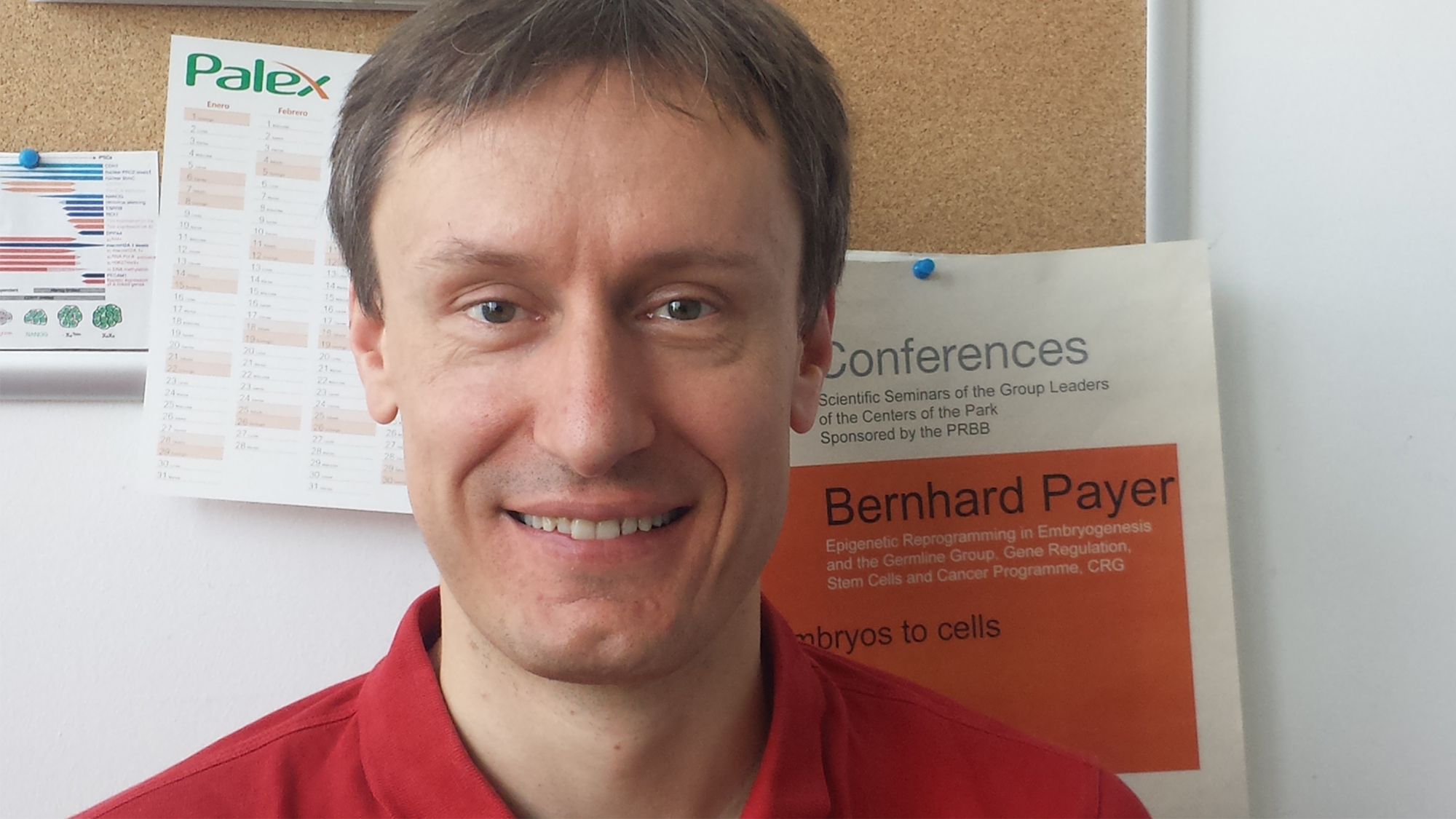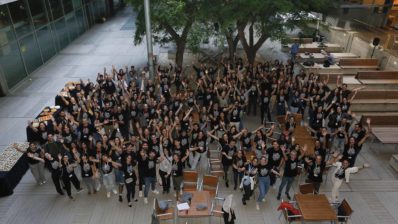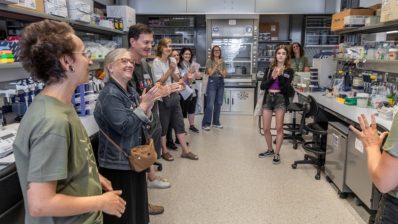Bernhard Payer (Wolfsberg, Austria, 1975) came to the Biomedical Research Park of Barcelona (PRBB) in 2014 to set up his own lab at the Centre for Genomic Regulation (CRG), after doing a PhD in Cambridge (UK) and a postdoc at Harvard. Working on X-chromosome reactivation, he says everything he does revolves around the X: eXperimenting, eXploring, and eXercising. And Barcelona is the perfect place for it all: he is successfully running his lab and enjoys his main hobby, cycling, in what he says is “the best cycling area I’ve ever seen.”
You started your career in Austria, moved to the UK for 5 years, to the US for 7 years, then back to Europe, to Barcelona. What are the major differences?
The work-life balance is sometimes better here. In the US and the UK people work longer hours, work more on weekends and take less holidays, although it does depend on the lab, too; my students here do have to come in at the weekend sometimes, because we work with cell lines which need to be taken care of at all times.
But in Boston there was a richer environment, in the sense that there were not only many top research institutes but also a lot of industry. This, I think, is good for career development, because it makes it easier to switch from academia if you feel it’s not your thing, and try the world of industry. Here, there’s a bit of that, but still not enough. Of course, this is perhaps quite unique to Boston, it’s something that sets that area apart from other places.
Why did you choose Barcelona and the CRG when coming back to Europe?
I knew that at the CRG there were several good groups working on stem cells and epigenetics. But it was only when I got here, I realised the whole of Barcelona is a perfect environment for my science. It is a hub for epigenetics and fertility research in Europe. There is a big epigenetics community, with all the groups in the city working in the field meeting up once a year. Also, because of its location, Barcelona attracts people. It has a great combination of high quality science and a good quality of life.
“Barcelona has a great combination of high quality science and a good quality of life”
Bernhard Payer
How difficult was it to set up your first lab?
It’s always difficult to start your own lab… but the CRG makes it easier. Financially, because we get core funding and a ‘start up package’, but also to get our first PhD students, because it has an international PhD programme with fellowships included. In general, I like the CRG’s philosophy of giving junior staff as much help as possible, to help them move forward later on. Because, like in the EMBL or Max Planck, juniors can only stay at the centre for a limited time, up to 9 years.
Does the PRBB environment help?
It does! We use the PRBB animal facility a lot, and it compares very well to the others I have worked in before (the IMP in Vienna, Gurdon Institute in Cambridge, and Harvard). I think the level of service and professionalism is very good; in particular, they offer certain assays that in other places you have to do yourself, like taking samples for genotyping or setting up mating. We also use the joint UPF-CRG FACS facility and the CRG microscopy and genomics facilities, which are all comparable to similar facilities at other top-institutions.
The other benefit of working at the PRBB is the high number of excellent quality seminars and conferences, which bring top scientists to the building. The interaction between the different centres at the park could be better, but this is improving, for example with the joint group-leader seminar series. I also took courses from the Intervals continuing development programme, which were helpful and resulted in interaction with people from the other centres.
What’s the best thing about doing research in academia?
That it’s curiosity-driven. You have a lot more freedom than you would in the corporate world. You do what excites you, not what you are told. You are your own boss!
And the worst?
The pressure to succeed at every career stage. The scientific path is a pyramid system; after a postdoc, only a few get a Principal Investigator position. And of the junior PIs, only a few will get senior positions… There’s a lot of uncertainty about the future.







